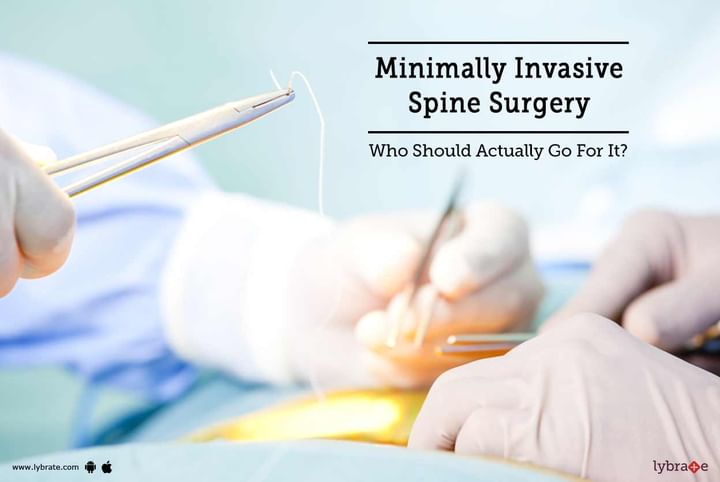Minimally Invasive Spine Surgery - Who Should Actually Go For It?
The spine plays a very crucial role, both from a person’s movement and sensation point of view. It carries the nervous supply for a lot of internal organs and the lower body. By virtue of its structure, it also helps in movement through the disks. Due to various reasons, spinal injury is common, causing pain along the back, lower extremities, neck etc.
Medicines and exercise are the first line of treatment for most spinal injuries. The issue, however, is that these only provide relief from the pain and the medicines, but do not actually ‘rectify’ the underlying problem. Whether it is a herniated disk or a pinched nerve, the medicines and exercise can relieve the symptoms, but the disk continues to be herniated and the nerve continues to be pinched. Definite treatment is in the form of surgery, and with recent advancements in the field of spinal surgery, there are minimally invasive surgical options, which provide complete cure with minimal recovery time. Some of the benefits of this are listed below-
-
Smaller incision compared to traditional surgical procedures, where only the injured area is accessed
-
The surrounding tissues are untouched, unless they are injured and require repair
-
Lesser bleeding compared to earlier techniques
-
Lesser painful procedure
-
Reduced hospitalization period
-
Quicker recovery and return to normal activities
The question, however, is whether this is indicated in everybody. A detailed discussion with your surgeon keeping the below points in mind will help identify the answer for this. The main driver should be the answer to the question – will the surgery be able to effectively relieve you of the pain and symptoms? Additionally, the following factors help in getting better results out of a minimally invasive spinal surgery.
-
Presence of symptoms relating to nerve compression, including pain from the spine down the leg.
-
Recent onset of symptoms, with pain starting days to months before seeing the doctor. This indicates the condition is relatively new and so damage is minimal, indicating favorable outcome. Chronic pain conditions take slightly longer time compared to recent injuries.
-
People with active lifestyle who engage in regular physical exercise are likely to have better benefits from the minimally invasive procedure.
-
Smoking reduces blood flow to the spine, leading to disk degeneration and weakening of bones. Healing is highly slowed down and recovery is overall delayed.
-
Excessive weight puts strain on the back, and so healing can be delayed or badly affected with more complications. It is not a contraindication, but be prepared for a longer recovery period.
Talk to your doctor keeping these points in mind, and you can bid farewell to your back pain forever.



+1.svg)
